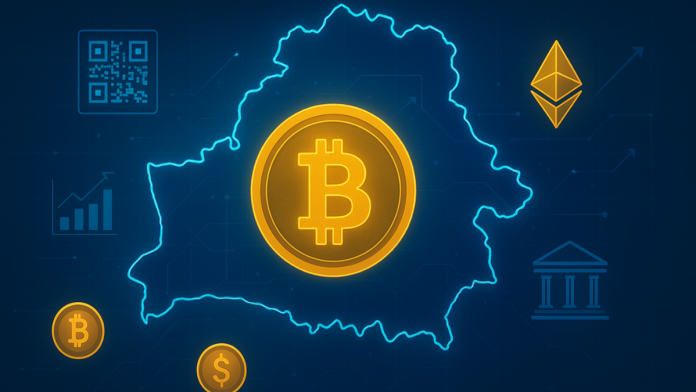Belarusian President Alexander Lukashenko has called on banks in the country to expand the use of cryptocurrencies, saying that they can help the economy deal with the heavy impact of international sanctions.
He explained that in the last five years, Belarus has faced major economic challenges. Many of these difficulties come from restrictions placed on the country’s exports and financial dealings by Western nations. These sanctions have cut Belarus off from several global markets, reducing trade and affecting the banking sector.
According to official data, crypto exchanges operating in Belarus, such as Binance, OKX, and KuCoin, processed around $1.7 billion in external payments during the first seven months of this year. Experts now estimate that the number could reach as high as $3 billion by the end of the year if the trend continues. That would mean payments almost doubling in just a few months.
Today, crypto transactions in Belarus are more active than ever. Millions of people around the world use virtual currencies, and Belarus is no exception. Current reports show that by 2026, more than 855,000 people in the country may be using digital coins. Out of a total population of 9.1 million, this would mean almost one in ten citizens being involved with them.
In an earlier move, Lukashenko signed a law that banned individuals from buying and selling cryptocurrencies outside local exchanges. This step was taken to bring more oversight and control to the growing sector.
Rules and digital systems in focus
Along with encouraging banks to look deeper into cryptocurrency use, Lukashenko also told lawmakers to create clear and transparent rules for the market. This means that exchanges and users will have a legal framework to follow.
In addition to crypto, the President also pushed banks to improve their digital payment services. He asked them to expand the use of QR codes and to introduce an instant payment system by the end of this year. Some banks in the country, including VTB Bank Belarus, have already started offering QR code payments linked directly to the national online system ERIP.
Officials have said that digitalization should not only be about using new technology but must also lead to real benefits for the economy. This includes creating faster, safer, and more reliable ways to pay for goods and services inside the country.
DOJ targets $848,247 in Tether as part of effort to curb rising cryptocurrency scam losses
The digital strategy also includes plans to adopt biometric technology, which can identify people through fingerprints or facial recognition. The goal is to improve security and make banking easier. The government has also mentioned creating a new IT company to reduce dependence on foreign service providers and adding artificial intelligence-based solutions to the system.
Belarus and crypto past decisions
Belarus has had a mixed relationship with cryptocurrencies in recent years. The government legalized crypto transactions in 2018. Since then, people and businesses have been allowed to sell, exchange, and even mine digital coins in the country.
In March this year, Lukashenko told the energy sector to look at ways of using the country’s extra electricity for cryptocurrency mining. This showed interest in turning unused resources into profit.
But not all steps have been supportive. In the summer of 2023, officials discussed the idea of banning peer-to-peer transactions, which means sending crypto directly from one person to another without going through an exchange.
Even with these debates, the current push is clearly towards stronger use of digital payments and crypto exchanges. The country’s leaders believe that modern technology in banking could help Belarus face its ongoing economic struggles.


